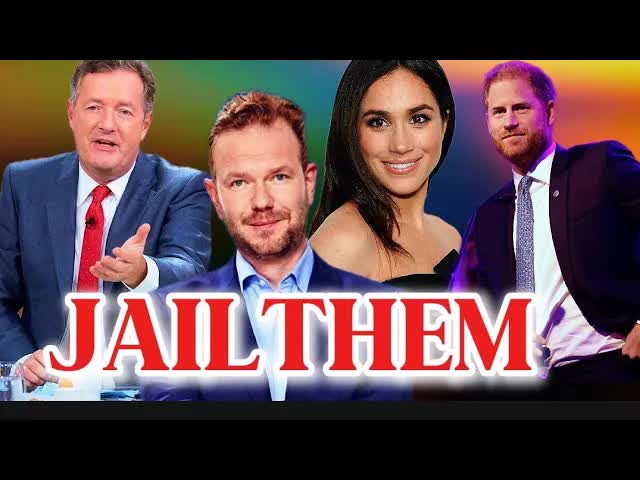In a world where the line between public interest and personal privacy is increasingly blurred, Prince Harry’s ongoing legal battle against the Daily Mail has ignited a fierce debate about media ethics and accountability.
Many observers are beginning to understand the relentless criticism directed at Harry and Meghan Markle as more than just tabloid fodder; it’s a complex issue involving the very foundations of journalistic integrity.
The British media has long had a tumultuous relationship with the royal family, but in recent years, tensions have escalated dramatically.
This friction reached a tipping point when Harry initiated legal proceedings against the Daily Mail, alleging that the publication engaged in illegal practices, including phone hacking, to fabricate sensational stories about him and his wife.
This case isn’t merely a personal vendetta; it shines a spotlight on the unscrupulous tactics employed by certain segments of the press.
Evan Harris, a prominent figure in media commentary, recently highlighted how newspapers often neglect to disclose their own involvement in legal controversies while launching attacks on public figures like Prince Harry.
Imagine a journalist criticizing a politician without revealing that they’re embroiled in a lawsuit with them.
It raises serious questions about credibility and fairness in reporting.
James O’Brien, a notable broadcaster, has been particularly vocal about the media’s treatment of Harry and Meghan.
He argues that their legal struggle reflects a much larger issue: the unchecked power and unethical practices pervasive in parts of the British media landscape.
O’Brien’s critique emphasizes how the relentless chase for sensational stories often compromises truth and accuracy, creating a toxic environment for those in the public eye.
This isn’t the first time the British press has faced scrutiny over its ethical standards.
The infamous phone-hacking scandal that emerged in 2005 revealed the lengths to which some newspapers would go to secure a story.
Journalists were caught intercepting private messages and voicemails from celebrities and even crime victims, leading to the closure of the News of the World and spurring a public inquiry into press ethics.
Despite promises of reform, many believe that such unethical practices persist.
Piers Morgan, a polarizing media figure, has been one of the most vocal critics of Prince Harry and Meghan.
His history as a tabloid editor and his penchant for sensationalism have led to accusations of bullying and harassment.
Morgan’s personal attacks on the couple have only intensified the hostile atmosphere surrounding them, showcasing the darker side of tabloid journalism that prioritizes scandal over substance.
The dynamics between the British royal family and the media have always been intricate.
While the royals depend on the press to maintain their public image, the media’s insatiable appetite for royal news often comes at a significant cost—namely, the privacy and well-being of the individuals involved.
Prince Harry’s decision to step back from royal duties can be seen as a direct response to the toxic scrutiny he and Meghan have faced.
Their departure from royal life sent shockwaves throughout the UK and beyond, prompting mixed reactions.
Some praised their bravery in seeking a different path, while others condemned their actions as detrimental to the monarchy.
Central to their decision was a desire to escape the invasive tactics employed by certain media outlets, highlighting the immense pressure public figures face in today’s digital landscape.
The media’s portrayal of Harry and Meghan has significantly influenced public perception, often relying on speculation rather than factual reporting.
This relentless scrutiny has fostered a culture of judgment, where every aspect of their lives is dissected and criticized.
Such an environment raises critical questions about the media’s role in shaping public opinion and underscores the need for greater media literacy among audiences.
Prince Harry’s legal action against the Daily Mail is not just about his personal quest for privacy; it represents a broader crisis in media ethics.
This case has reignited discussions about the press’s responsibilities in a democratic society and the delicate balance between freedom of expression and the right to privacy.
The erosion of trust in the media, fueled by scandals and unethical practices, threatens the very fabric of public discourse.
Harry’s bold move sends a clear signal: he will no longer tolerate intrusive media practices.
His fight, along with similar legal battles from other public figures, signifies a growing trend of individuals standing up against what they perceive as unjust reporting.
This struggle extends beyond celebrities; it’s a call for accountability in an industry that often operates without oversight.
As this saga unfolds, it raises important implications for the future of the British monarchy and the media landscape as a whole.
The younger royals, including Harry and his brother William, have adopted contrasting approaches to dealing with the press, reflecting the changing dynamics within the royal family.
The outcome of Harry’s legal battle could very well reshape the relationship between public figures and the media, potentially ushering in a new era of ethical journalism.
